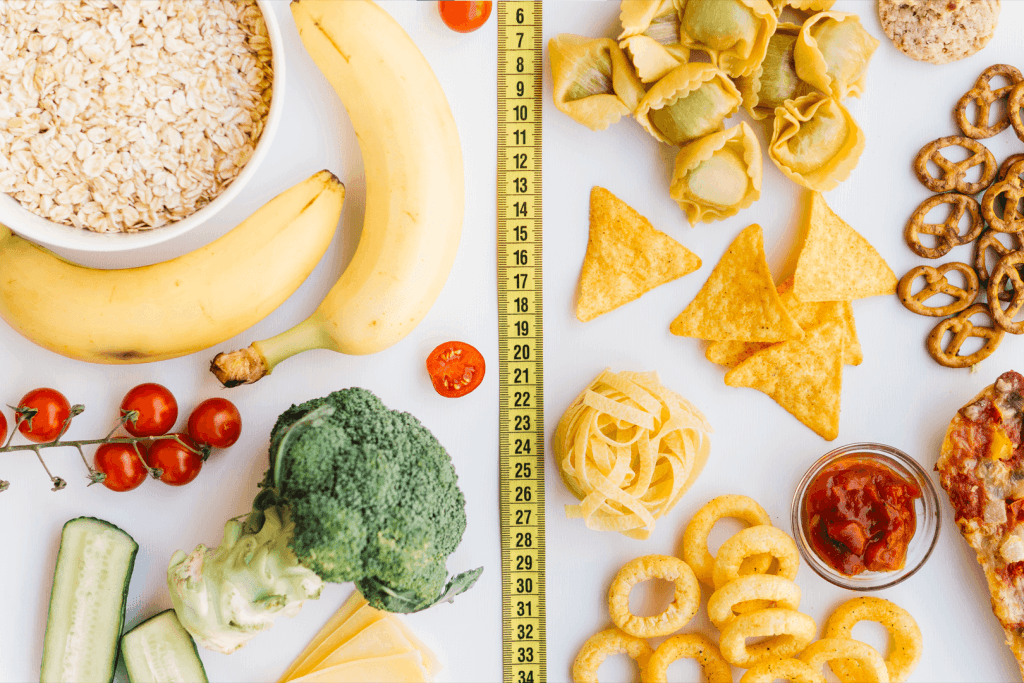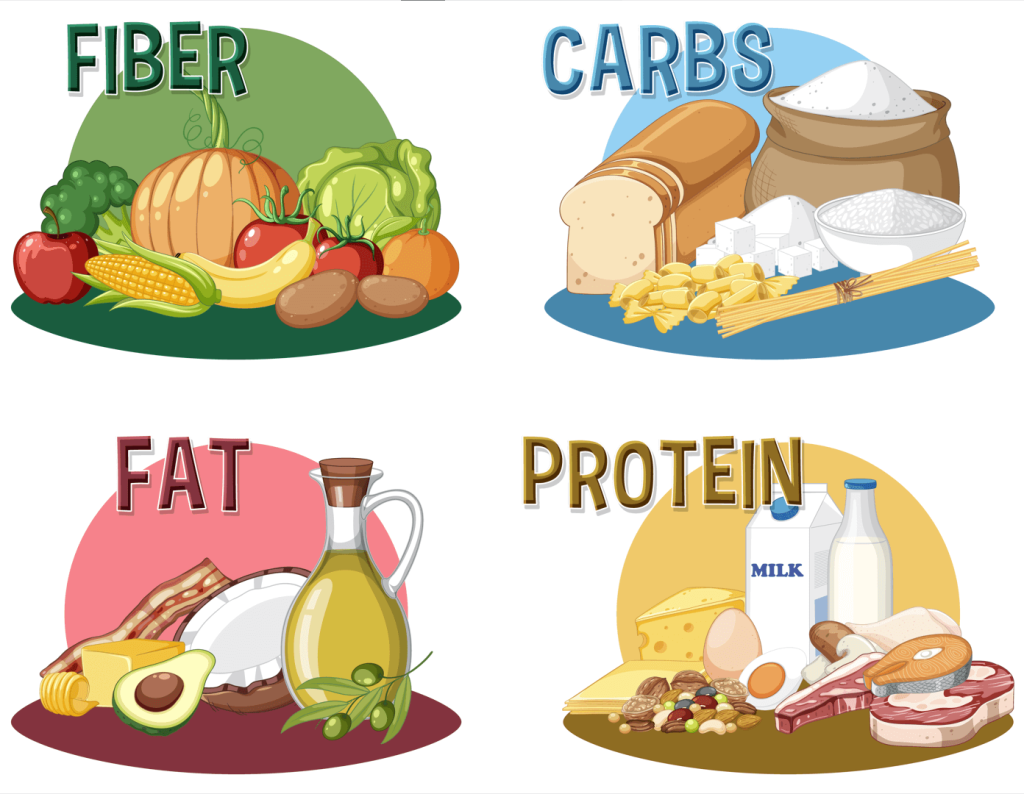Individuals who face gallbladder issues are often part of a community seeking to navigate their health journey with care and support. As such, understanding the dietary choices that can influence gallbladder health is crucial. If you know about the foods that can trigger gallbladder problems and pain, you are already a step ahead of others.
Certain foods, rich in fats, cholesterol, and refined carbohydrates, are known to exacerbate gallbladder problems, potentially leading to discomfort or the formation of gallstones. These include fried and processed foods, full-fat dairy, certain meats, and sugar-laden beverages.
In contrast, a balanced diet emphasizing plant-based foods, lean proteins, and unsaturated fats, along with high-fiber options, can be beneficial.
Foods That Can Trigger Gallbladder Pain – Highlights
- Foods high in fat, particularly saturated and trans fats, can trigger gallbladder symptoms.
- High intake of processed sugars, particularly fructose, is associated with an increased risk of gallbladder disorders.
- High-fiber cruciferous vegetables like broccoli, Brussels sprouts, and cabbage may cause gas and bloating, leading to gallbladder discomfort.
- Excess sugar in sugary drinks can increase the risk of gallstones by raising triglyceride levels.

Identifying High-Risk Foods
To mitigate gallbladder distress, individuals should diligently identify and limit the consumption of high-risk foods known to exacerbate symptoms.
Foods high in fat, particularly saturated and trans fats, can trigger gallbladder symptoms by stimulating the organ to contract more forcefully, potentially leading to pain and discomfort. Fatty meats such as bacon and sausage, along with fried foods, are prime examples of such dietary culprits.
Moreover, foods high in refined carbohydrates and added sugars can contribute to rapid weight loss, which may increase the risk of gallstone formation.
Full-fat dairy products, including milk, cheese, and ice cream, are also associated with gallbladder flare-ups due to their high cholesterol content. It is essential to note that cholesterol is a key component in gallstone development.
Processed foods often contain a combination of high fat, refined carbohydrates, and added sugars, making them particularly problematic.
Eggs, despite being nutrient-dense, can also be high in cholesterol, warranting moderation in consumption to prevent gallstones from forming.
Refined Sugars and Gallbladder Health
Refined sugars’ detrimental impact on gallbladder health is significant, as they contribute to inflammation and the potential development of gallstones.
Clinical studies have consistently demonstrated an association between a high intake of processed sugars and an increased risk of gallbladder disorders. Foods high in added sugars, particularly fructose, can lead to the production of cholesterol-rich bile, which is a precursor to gallstone formation. Moreover, incorporating certain foods into the diet, such as low-fat dairy products, may help mitigate these risks. For instance, research has suggested that yogurt and gallstone health benefits can arise from the probiotic content and nutrients found in yogurt, potentially aiding in cholesterol management and promoting a balanced digestive system. Therefore, paying attention to sugar intake and including beneficial foods in the diet could be key strategies for maintaining gallbladder health.
Eating a healthy diet, low in refined sugars and high in fiber, can help reduce the risk of developing gallbladder problems. It is recommended to avoid or limit the consumption of sugar-sweetened beverages and snacks which are not only high in added sugars but often contain unhealthy fats.
These dietary choices are known to exacerbate symptoms in individuals with gallbladder issues.
Incorporating foods that can help maintain gallbladder health is essential. A diet high in vegetables, fruits, whole grains, and lean proteins can help manage the symptoms and prevent complications. Moreover, avoiding fatty foods, particularly those high in saturated and trans fats, is critical since they can trigger gallbladder attacks.
A deliberate and mindful diet can help in the prevention and management of gallbladder issues, ensuring individuals feel a sense of belonging to a health-conscious community.

The Impact of Fatty Foods
Numerous fatty foods have been identified as triggers for gallbladder discomfort, with some posing a higher risk due to their saturated and trans fat content. The gallbladder’s role in digesting fats can be compromised when individuals consume foods high in these types of fats, leading to symptoms such as gallbladder pain and indigestion.
It is essential for those with gallbladder issues to be mindful of their dietary choices, particularly when it comes to the following:
- Red MeatRich in saturated fats, red meat like steaks and hamburgers can increase cholesterol levels and stress the gallbladder.
- Baked Goods and Snack FoodsItems such as cookies, donuts, and chips are often high in both trans and saturated fats, contributing to gallbladder strain.
- Dairy FoodsFull-fat dairy products, including cheese and ice cream, can be high in fat content, posing risks for gallbladder health.
- Fried FoodsGreasy foods like french fries and fried chicken have a high fat content that can trigger gallbladder symptoms.
Eating high-fat foods regularly may increase the risk of gallstones and exacerbate gallbladder problems. It’s advisable to maintain a diet low in cholesterol and saturated fats to support gallbladder function and overall health.
Vegetables to Approach With Caution
Certain vegetables, while generally healthy, may exacerbate gallbladder conditions and should be consumed with discretion. In the context of gallbladder health, specific vegetables can pose a risk due to their complex constituents.
High-fiber cruciferous vegetables such as broccoli, Brussels sprouts, and cabbage have been associated with gas and bloating, which may cause gallbladder discomfort. This is attributed to their fiber content, which, while beneficial for overall health, can challenge a compromised digestive system.
Additionally, nightshade vegetables including tomatoes, peppers, and eggplants may aggravate gallbladder symptoms for some, potentially leading to digestive discomfort.
The precise mechanism by which nightshades affect the gallbladder is not fully understood, but their impact on the digestive process warrants caution in a gallbladder-friendly diet.
Starchy vegetables, with their higher carbohydrate content, can also contribute to digestive distress, particularly in individuals whose bile secretion is insufficient to manage high volumes of dietary fat and cholesterol.
Furthermore, vegetables with high oxalate levels, such as spinach and beets, might contribute to gallstone formation, necessitating moderation in consumption.
Lastly, the digestion of raw, fibrous vegetables can be taxing for those with gallbladder issues, making cooking or steaming a preferable preparation method to reduce the risk of digestive symptoms.
Beverages That May Cause Discomfort
Transitioning from the impact of specific vegetables on gallbladder health, beverages such as soda and other sugar-sweetened drinks have been implicated in exacerbating gallbladder issues.
The high sugar content in these beverages can contribute to the formation of gallstones, which are solid deposits of cholesterol and other substances that form in the gallbladder.
These drinks may affect the body’s ability to metabolize fats efficiently, leading to higher cholesterol levels—a risk factor for gallbladder disease.
Beverages that may cause discomfort for those with gallbladder concerns often include:
- Sugary DrinksExcess sugar can increase the risk of gallstones by raising triglyceride levels.
- Alcoholic BeveragesWhile moderate consumption might offer some benefits, heavy and long-term use can lead to gallbladder problems.
- Caffeinated CoffeeIn moderation, it may reduce the chance of gallstones, but excessive intake might have adverse effects.
- High-Fat DairyOptions like whole milk can lead to increased cholesterol in bile, making it harder for the gallbladder to release bile efficiently.
It’s essential to maintain a balance, as the gallbladder produces a fluid that helps the body digest fats in the small intestine. Avoiding or limiting intake of refined grains and trans fats, in addition to these beverages, can support gallbladder health and prevent discomfort.
Staying hydrated with water is crucial, as it aids in the proper function of the gallbladder and the efficient flow of bile.
Final Note From Dr. Rajarshi Mitra
Careful consumption is critical to curtail complications of the gallbladder. Vigilance against various victuals—rich in refined sugars, saturated fats, and complex carbohydrates—can prevent the precipitation of painful pathologies.
Emphasizing education on edible entities ensures individuals avoid alimentary aggravators. Advocating for a balanced bounty of beneficial nutrients not only nurtures gallbladder health but also bolsters overall bodily harmony.
Ask Dr. Rajarshi Mitra – FAQs
What Will Make Your Gallbladder Flare Up?
Gallbladder flare-ups may be provoked by high-fat diets, rapid weight loss, and large meals. Factors such as dairy sensitivity, processed snacks, refined sugars, caffeine intake, dehydration effects, elevated estrogen levels, and a sedentary lifestyle contribute.
What Can Mess up Your Gallbladder?
Gallbladder dysfunction can result from high-fat diets, rapid weight loss, and estrogen therapy. Genetic predispositions, sedentary lifestyles, and cholesterol-rich snacks increase risks, as do biliary sludge buildup and certain food allergy triggers.
What Triggers Gallbladder Inflammation?
Gallbladder inflammation may result from risky dietary habits, such as consuming cholesterol-rich foods and foods with unsaturated fats, or from rapid weight loss, elevated estrogen levels, bile duct obstruction, and inflammatory food additives.
What Triggers Gallbladder Symptoms?
Gallbladder symptoms can be influenced by dietary choices. Emphasizing gallbladder-friendly diets, rich in fiber and hydration, while managing meal frequency, can regulate bile flow and reduce cholesterol impacts, mitigating the risk of symptomatic episodes.



















